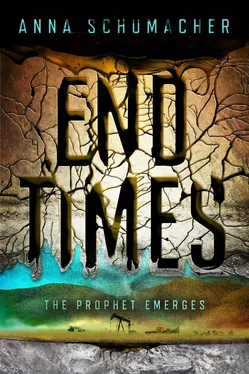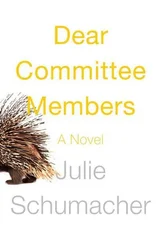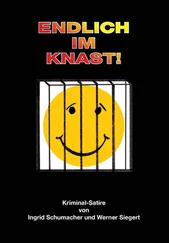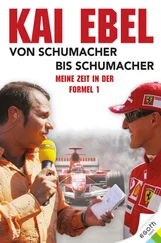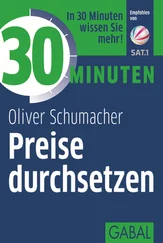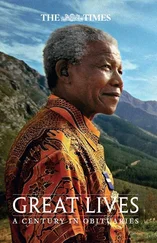He felt the wild awe of the crowd as he slid back into the saddle and whizzed across the finish line, cutting at a hard angle to send up a cloud of dust and clotted earth. There he waited a moment, letting his heartbeat cool as the tingling thrill of competition drained from his fingers. By the time the rest of the riders puttered across the line, their faces set in that stony scowl of envy he’d come to know so well, the rush was already starting to wear off. It was just another race, just another trophy he’d toss in the dumpster on his way to the next town. Sure, he could use the prize money—it was what got him from track to track, what paid for repairs and cheap diner meals and gasoline—but it wouldn’t quiet that horrible, gravelly voice in his head, telling him to find the vein until he wondered if he was crazy or suicidal or both.
It wouldn’t stop his dreams.
* * *
“THAT was some race you ran there, son.” The race organizer—Tyler, according to the name stitched across the front of his American Motocross Association jacket—handed Owen a check for three hundred dollars, his first-place winnings. The sun had started to set over the cragged pine tree line in the distance, and the last of the contestants had already packed up their bikes and families and were driving away under an eggplant-colored sky. “You were like a bat outta hell on that track—I swear, in all my days, I never saw anyone take corners so tight.”
“I just got lucky.” Owen folded the check into his back pocket.
“That was more than luck, son.” Tyler gathered a sheaf of papers from the folding table with hands as thick and dirt-streaked as hot dogs left too long on the grill. His metal folding chair screeched as he pushed it back against the pavement. “I guess I’ll be seeing you on the pro circuit before too long.”
He stood to leave.
“Hey,” Owen said quickly. “Got a sec to answer some questions?”
Tyler paused. He was a bulky man in his midfifties, squat and square as a fireplug, his hair gray and more than a little greasy. He had the leathered face of someone who had spent his life in the Pacific Northwest, tacitly accepting sharp winds and salt water and endless rain as a matter of course.
“I doubt there’s anything I can tell you . But try me.”
“It’s not about motocross.” Owen knew that everything he needed to know about that was coiled in his muscles, racing to leap to life on the track. “It’s about this area. Have you lived here long?”
Tyler furrowed an eyebrow. “Only since I was half your size and twice as stupid. Why d’you ask?”
“I’m looking for some info on a place that used to be around here.”
“Try me.”
Owen kept his voice cool. “It’s an old commune, called Children of the Earth.”
The name, and the fact that it was somewhere near Olympia, were all Owen knew about the place he was born. As a child, his questions about it had deepened the lines around his mother’s normally lively eyes until he learned, reluctantly, not to ask anymore. He guessed, but never knew for sure, that her time at Children of the Earth was the reason she sometimes trailed off in the middle of sentences, her eyes misting and growing faraway before he or his sister or stepdad could wave their hands in front of her face to draw her back. He wondered, sometimes, if the snippets of old tunes she sang, songs he’d never heard on the radio or found through online searches, came from there. Most of all, he wondered if the Children of the Earth had something to do with his dreams.
Tyler’s wrinkles arranged themselves into a quizzical road map. “I remember it, sure. Hasn’t been around for years, though. Must have shut down when you were barely old enough to piss standing up.”
Owen’s pulse quickened, struggling toward answers. “Any idea what happened?”
“Gosh, let’s see.” Tyler rubbed a hand over the stubble on his face. “It’s been well over a decade since it got shut down. Nobody really knew why, but it wasn’t pretty. Lot of rumors about that place. They say the Feds came and picked up their leader—what was his name? Murphy? Murdock? Something like that.” He paused, staring off into the foggy peaks in the distance. “Anyway, most of ’em skipped town. A few stayed, though, ladies with kids, mostly. Got jobs around town.”
“Are any of them still here?” Need pulsed at Owen’s temples. He suspected, sometimes, that the Children of the Earth were the dusky figures dancing by the bonfire in his dreams. Sometimes, he drew close enough to glimpse a wild grin of dark ecstasy or the glint of an emerald eye; but their faces always receded into the darkness of his memory before he awoke, leaving him grasping at shadows.
“Well, there’s one, Pam, who was around until just this past year. Worked at the laundromat. Nice lady, kinda quiet. But she finally went back to her folks in—oh, I dunno, one a’ them eastern states. Connecticut or something. Guess she got sick of trying to keep a lid on that daughter of hers.”
“Daughter?” Owen felt his ears perk up.
“Oh, Luna.” Tyler chuckled softly. “She’s still around—hard to miss, that one. Though if you want to know about that commune, she may be your best bet.”
Luna. The name roared through Owen’s head, a distant siren song from his dreams.
“Any idea where I can find her?”
“Let’s see.” Tyler scratched his head. “I think she still performs with Ariel Crow’s band—the Fine Feathered Family, they’re called. You can check and see if they’re still in town; they usually put posters up outside the food co-op when they have a gig.”
“Thanks.” Owen stuck out his hand. “I appreciate your time, Tyler. You’ve been a real big help.”
Tyler pumped his hand up and down. “What’cha want with that Children of the Earth place, anyway?” he asked as Owen turned to go.
Owen froze. “No real reason,” he said, not meeting the older man’s eyes. “I read an article once, and I was curious.”
“If you want my two cents, son, you’d do better to steer clear of any commune business and keep your eyes on the prize.” Tyler nodded down at the motocross track, which was silent and dusky in the gathering night. “I know pro when I see it—and, son, mark my words, within a year you’ll be pro.”
“Thanks for the vote of confidence,” Owen said. But he suspected, as he turned and made his way toward the parking lot, to his truck and Luna and the future, that in a year it wouldn’t matter anymore. In a year, everything would be different.
DAPHNE jerked awake. A brassy blast filled the Greyhound bus, the note long and sustained. A moment later it was followed by another, lower note, sounding a deep brass fanfare.
She craned her neck, sore from sleeping kinked and curled against the cold plexiglass window, and looked around at the handful of other passengers, wondering if someone had turned on a radio or taken the opportunity to practice the trumpet. But everyone else was silent, peering up and down the length of the bus as they tried to find the source of the sound.
“Is that your radio?” a rumpled woman who’d been eating coconut flakes from a bag since they left Cheyenne asked the driver. He shook his head, eyes confused in the rearview mirror. He even turned it on to check, shuffling through country stations and classic rock and static.
“I think it’s coming from outside,” he surmised.
Daphne pressed her ear to the window and the notes grew louder, their tones simultaneously bright and muted, exciting and monotonous. It sounded like they were trying to introduce something, like a line of sentries sounding the arrival of a king. They made her want to keep listening even as she pressed her hands against her ears, wishing they would stop.
Читать дальше
